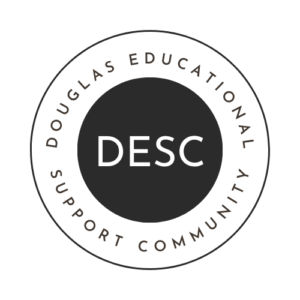I’ve enjoyed working with and conversing with Florence Daddy a few times, and was pleased when we had this chance to record an interview.

Florence Daddey, currently teaching in the Faculty of Commerce, Business and Administration in the Business Management Department
Background
I am grateful for the opportunity to have lived in 3 continents. I was born in Ghana- West Africa, lived in England where I did most of my post secondary education and then moved to Canada in 2003. After University, I trained with Price Waterhouse in London to be a Chartered Accountant. I quickly realized that I did not enjoy auditing and through many volunteering opportunities with youth in inner city London, I discovered my passionate and love of teaching. Therefore, I decide to choose education and teaching as a career. In the last 17 years, I have had the opportunity to work as an instructional designer-supporting faculty in developing curriculum for different programs and supporting faculty in adopting appropriate teaching and learning pedagogy for their context in which learning takes place.
In addition, to that I support faculty in using technology to support teaching and learning and I think we met each other attend various Educational Technology User Group – (ETUG) workshops.
Given my personal experiences, I’m passionate about accessibility, inclusion and diversity issues. I’m certainly aware of the numerous barriers that can prevent certain groups of students in accessing post secondary education. Growing up in Ghana I quickly became away of my status and privileges. I witnessed true poverty where my family provided for many children. However, in Western nations we are given the impression that there is no poor person and the social security system is a buffer.
As I engage with students I quickly realized that is not the case so I develop a passion for open education practices and advocates how the use of open textbooks and resources can benefit both faculty in terms of having control over your teaching resources and materials and helping reduce the educational cost for students.
“How can we respond, in our roles, to the increasing calls for change? Especially in regards to post-secondary education?”
It is important to decide what is important to you about teaching and your pedagogical belief and identity.
I want my students to have a positive learning experience and especially in the current environment where a lot is changing around us and the change is happening so quickly. I have to take a step back and reassess my purpose and my role as an instructor.
By doing that, I’m able to figure out how best to use all the tools and resources available to meet my needs and to adopt an appropriate pedagogy for the student to learn given the context and learning environment.
In my practice, I get students to think about the learning environment as a community and the importance of building relationships. I like referring to the image on the text book “Pulling Together: A guide for Indigenization of post-secondary institutions. A professional learning series”.
Different cultures emphasize the importance of family and community and I try to use that belief to our classroom and learning experience.
I emphasis the strengths within a learning community and I promote learning through collaboration and get students to appreciate the contributes of everyone to our learning.
So, as I think about my discipline in the light of all the calls for actions I’ve certainly considered the changes that I can make, for example, by bringing indigenous perspectives and knowledge to our conversations as we discuss leadership.
I use examples of indigenous entrepreneurs and highlight their stories, how Indigenous businesses are set up… to give back to their communities. Even if it’s for profit, it’s not always individual profit but share. Let these be reflected in the textbooks and materials that students are reading, along with other ways to use stories from minorities and ethnicities.
Faculty can create their own materials and resources reflecting inclusivity and diversity by engaging in open education.
We can help change the narrative, and consider the impact on students who may have financially challenging situations by creating and adopting more open educational resources and strategies.
Interview with Florence Daddey, July 16, 2020

